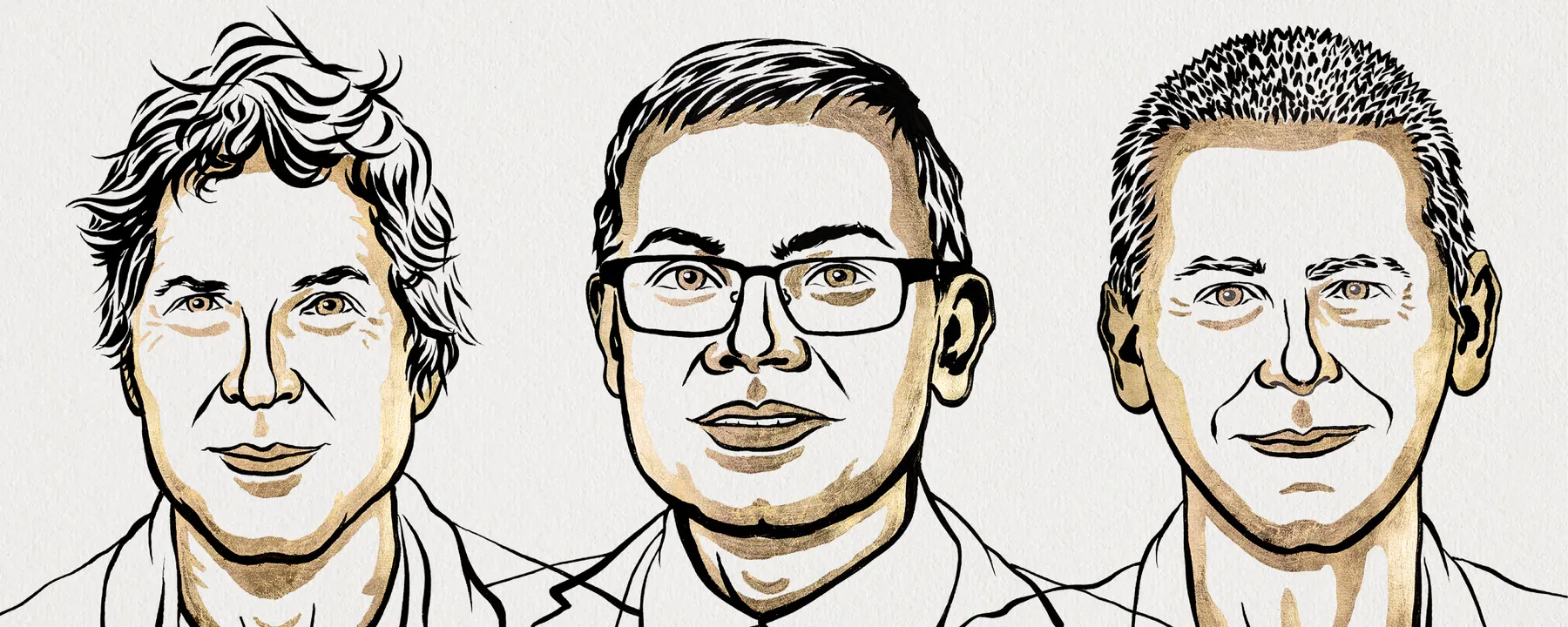Nobel Prize in Chemistry Awarded for Breakthroughs in Protein Design
This year’s Nobel Prize in Chemistry was awarded to three distinguished scientists—Demis Hassabis, John M. Jumper, and David Baker—for their revolutionary work in protein structure prediction and computational protein design. Their cutting-edge research has significantly advanced the field of biochemistry, offering new tools for understanding proteins at a molecular level. These advancements have the potential to transform drug discovery and disease treatment.
Demis Hassabis and John M. Jumper: Innovators in Protein Structure Prediction
Demis Hassabis and John M. Jumper, both associated with DeepMind, have been recognized for their groundbreaking work with AlphaFold, an artificial intelligence system capable of predicting protein structures with unprecedented accuracy. AlphaFold has solved one of the most difficult challenges in biology—predicting how a protein folds into its three-dimensional structure. This capability allows scientists to better understand the function of proteins, which are critical to virtually all biological processes. The innovation has opened new doors for drug development, offering insights into how to target specific proteins involved in diseases.
David Baker: Pioneering Computational Protein Design
David Baker, a leading scientist from the University of Washington, was honored for his contributions to computational protein design. Baker’s research focuses on creating novel proteins that do not exist in nature but can be designed for specific purposes, such as creating new medicines or industrial catalysts. His work allows scientists to manipulate protein structures in ways that were previously unimaginable, giving them the ability to design proteins with tailor-made functions for medical, environmental, and industrial applications.
Revolutionizing Drug Discovery and Biochemistry
The contributions of Hassabis, Jumper, and Baker are poised to revolutionize drug discovery and biochemistry. By understanding and designing proteins at the molecular level, researchers can accelerate the development of new therapies for diseases like cancer, Alzheimer’s, and other conditions where proteins play a key role. These advancements in protein design could also lead to the creation of new materials and biological systems that mimic natural processes but are optimized for human needs.
Global Impact and Future Potential
The Nobel Prize committee highlighted the global significance of this research, noting that the implications of these discoveries extend beyond academia. The ability to predict and design proteins has applications in pharmaceuticals, agriculture, environmental sustainability, and biotechnology. The work of Hassabis, Jumper, and Baker is expected to influence scientific research for decades to come, driving further innovations in molecular biology and synthetic biology.
Conclusion: A New Era in Biochemistry
This year’s Nobel Prize in Chemistry recognizes not only the remarkable scientific achievements of Hassabis, Jumper, and Baker but also the broader impact their work will have on the future of biochemistry. Their contributions to protein structure prediction and computational protein design represent a major leap forward, offering new possibilities for scientific exploration and practical applications that could change the world.
Bridging Biology and Artificial Intelligence
The work of Hassabis, Jumper, and Baker also demonstrates the growing intersection of artificial intelligence and biology. AlphaFold, powered by machine learning algorithms, represents a fusion of computational power and biological research, showing how AI can accelerate scientific discovery. This breakthrough has enabled researchers to solve protein structures that previously required years of experimental work, in just days or even hours. The collaboration between AI and biochemistry is likely to spur further innovations, offering faster solutions to biological challenges and driving advancements in personalized medicine, synthetic biology, and more.



































